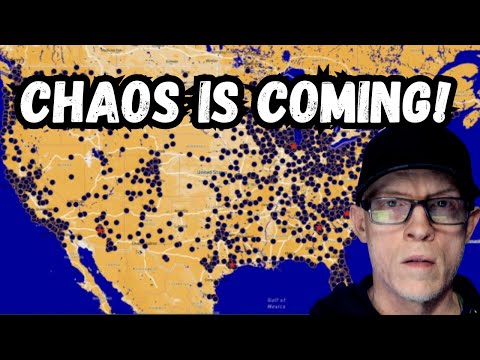In this economic/financial news report we discuss the growing unrest and economic challenges in the United States. It highlights widespread protests scheduled for June 14th, involving hundreds of cities, and troubling signs of escalating inflation, especially in car prices. The speaker emphasizes that inflation, which had been slowing, is now accelerating again due to factors such as tariffs and supply chain disruptions. Used car prices have hit a record average of $30,000, fueled by strong demand and limited supply. Concurrently, financial distress is rising as delinquencies on car loans reach record highs, with many borrowers having subprime credit scores. The video also points to issues like soaring commercial rents leading to restaurant evictions, which contribute to “greedflation”—higher prices driven by landlords’ profits rather than actual cost increases. Additional concerns include a collapsing job market, particularly for recent graduates burdened by student loans, and shifting consumer behaviors such as reduced sales at Starbucks and even in underwear purchases, which some see as an economic indicator. The overall narrative suggests the nation is facing a cost-of-living crisis layered with social unrest, escalating debt, and economic instability, with the situation intensifying ahead of the protests.
Highlights
🔥 Protests planned across 1,800+ cities on June 14th amid rising social tensions.
📈 Inflation is accelerating again after a period of slowdown, defying earlier expectations.
🚗 Record-high used car prices averaging $30,000, driven by tariffs and supply-demand imbalance.
💸 Loan delinquencies hitting record levels, especially among subprime borrowers struggling to keep up.
🏢 Commercial rents soaring to $10,000+ per month causing restaurant evictions, contributing to “greedflation.”
💼 Job market described as “trash,” especially tough for recent college graduates with student debt.
☕ Consumer spending on discretionary items like Starbucks and underwear declining, signaling economic strain.
This channel contains news and analysis that often includes ‘one mans opinion’. The information conveyed should never be taken as investment advice. Everyone should do their own due diligence and research before making investment and money decisions.






